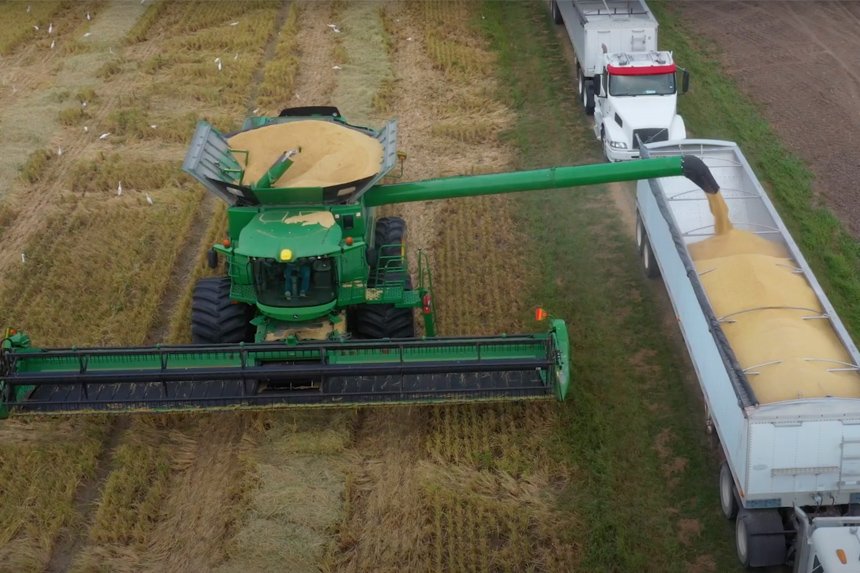Along with a local lumpectomy, Amelia and her family decided to support her healing journey with a clean, thoughtful, plant-based lifestyle, emphasizing harmony with nature and focusing on whole, minimally processed foods. On her search for a delicious treat that suited her new dietary needs, Amelia created the recipe for what became the very first MacroBar®. Immediately, the family knew it was something that needed to be shared with the world. So, when Amelia and her daughter, Jola, began spreading the MacroBar goodness with the world, they committed to staying true to their core values, using only the highest quality ingredients that nourish the body and the planet – one key component of which is our Organic Certification.
Why Organic?
To be Certified Organic, the USDA requires that a product only include ingredients produced without the use of synthetic pesticides, herbicides, and fertilizers, as well as without genetically modified organisms (GMOs). Synthetic colors, flavors, and preservatives are also prohibited. To receive and maintain Organic Certification, farms, and food processing facilities must undergo regular inspections, documentation, and ongoing compliance checks.
It might sound like a lot of work, but Organic Certification is one of the ways we remain true to our founding values and Our 5 Principles. We believe that natural food that is closer to the earth and less processed is healthier for the body and soul, which is why we only work with suppliers who meet our high standards for taste, certifications, and environmental stewardship. We also believe consumers deserve transparency when it comes to the foods they put into their bodies, and we are committed to being able to proudly deliver that.
Health Benefits of Organic
While scientific consensus on the specific health benefits of organic food is still developing, there are many potential advantages to eating organic foods. A minimally processed, plant-based diet is linked to reduced risk of heart disease, certain cancers, obesity, diabetes, cognitive decline, and more. Eating organic allows you to avoid many highly processed ingredients like food dyes and synthetic sweeteners, which may contain carcinogenic chemicals and increase the risk of metabolic syndrome.
Organic food has also been found to have significantly lower pesticide residues compared to conventionally grown food – a perk that not only benefits consumers but also farm workers who are frequently exposed to high levels of pesticides. While more research is needed, current studies show that infants, children, and pregnant women are at the highest risk when it comes to pesticide exposure. Three long-term birth cohort studies in the U.S. found that women’s exposure to pesticides during pregnancy was associated with negative impacts on their children’s IQ and neurobehavioral development.
Some studies have also suggested that organically grown food may have higher levels of nutrients compared to conventional crops. For example, a review published in the British Journal of Nutrition found that organic crops had higher levels of certain antioxidants and lower levels of cadmium, a toxic heavy metal.
Environmental Benefits of Organic Farming
Organic farming also offers all kinds of potential benefits for the health of the soil, air, waterways, and biodiversity. One main environmental upside is the reduction in synthetic pesticides, which can be toxic to birds, pollinators such as bees, non-targeted plants, and even fish when the chemicals run into waterways. Additionally, the extensive use of synthetic nitrogen fertilizers in conventional farming can create hazardous runoff that stimulates algae growth, reducing the oxygen content of waterways and suffocating aquatic species.
Organic farming does more than just reduce harm though; it also has the potential to make a positive impact on the environment. Without the use of pesticides or synthetic fertilizers, many organic farmers invest greatly in creating healthy farm ecosystems and building rich soil. Maintaining healthy, organic soil is a powerful tool for sequestering carbon from the atmosphere and helping mitigate climate change. In addition, organic systems have been shown to produce 40% higher yields in drought conditions, release 40% fewer carbon emissions, and use 45% less energy as compared to conventional farming methods.
How You Can Make an Impact
Choosing organic food – whether for your health or the environmental benefits – is a great way to live more in balance with nature. Getting started is as simple as thoughtful shopping. For example, try to purchase from local organic farms whenever possible. If shopping fully organic isn’t accessible, check out the “Clean Fifteen” and “Dirty Dozen” lists to help decide when to prioritize organic. Look for the Certified Organic badge on food labels to easily identify foods that have undergone third-party certification.
If you’re in need of a delicious organic snack you can feel good about, all GoMacro products are Certified Organic and made with carefully sourced ingredients.




